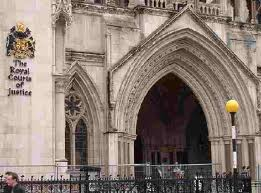The decision of the Upper Tribunal (Lands Chamber) in Ashok Patel v Jackson (VO) (2018) UKUT 0420 (LC) is one that has important implications for all those who make proposals to alter the rating list. The Appellant in this case was the occupier of a small hotel and, through an agent, made a proposal seeking a reduction in the rating assessment of the hotel on the grounds of a material change of circumstances, which was stated in the proposal as “the loss of one bedroom to provide staff accommodation”. The Valuation Tribunal for England (VTE) dismissed this appeal and the ratepayer appealed to the Upper Tribunal (Lands Chamber).
The Appellant’s statement of case before the Upper Tribunal made clear that a wall between one of the bedrooms and the breakfast room was removed and the partition between another bedroom and the breakfast room was moved, both alterations to enlarge the breakfast room. The Upper Tribunal considered, as a preliminary question, whether the alteration to the rateable value sought by the ratepayer fell within the terms of the proposal it had made. The Tribunal concluded that the terms of the proposal could only be taken to mean that one room in the hotel had ceased to be used as a bedroom and was now used as staff accommodation. This was a change that related to the Appellant’s use of the premises and did not relate to any of the “material matters” set out in the legislation that represented material changes of circumstance.
As both the VTE and the Upper Tribunal are bound by the scope of the original proposal, this meant that the Tribunal could not consider whether the grounds stated in the appellant’s statement of case amount to a material change of circumstances. As the Tribunal put it “where the nature of the change described in the proposal is different from the nature of the change on which the proposer wishes to rely when the matter comes before the VTE or this Tribunal the proposer will face an insurmountable difficulty”.
This case shows the importance of wording proposals, particularly for events relating to material changes of circumstance, and that sometimes a too exact wording can be just as damaging as a too loose set of words. The outcome seems a harsh one for the ratepayer concerned, who had identified that the hotel now had one less bedroom than before, but had failed to identify correctly the reason for that, stating that the space concerned was used as staff accommodation, rather than stating that structural alterations had resulted in the hotel having one less bedroom. There seem to us to be two lessons from this. The first is that when a proposal to alter the rating list is made it should bear in mind all possible matters that the maker of the proposal may seek to rely upon, and the second is that the very high level of property taxes in the UK will continue to mean that arguments as to procedural points in rating appeals are worth pursuing.

